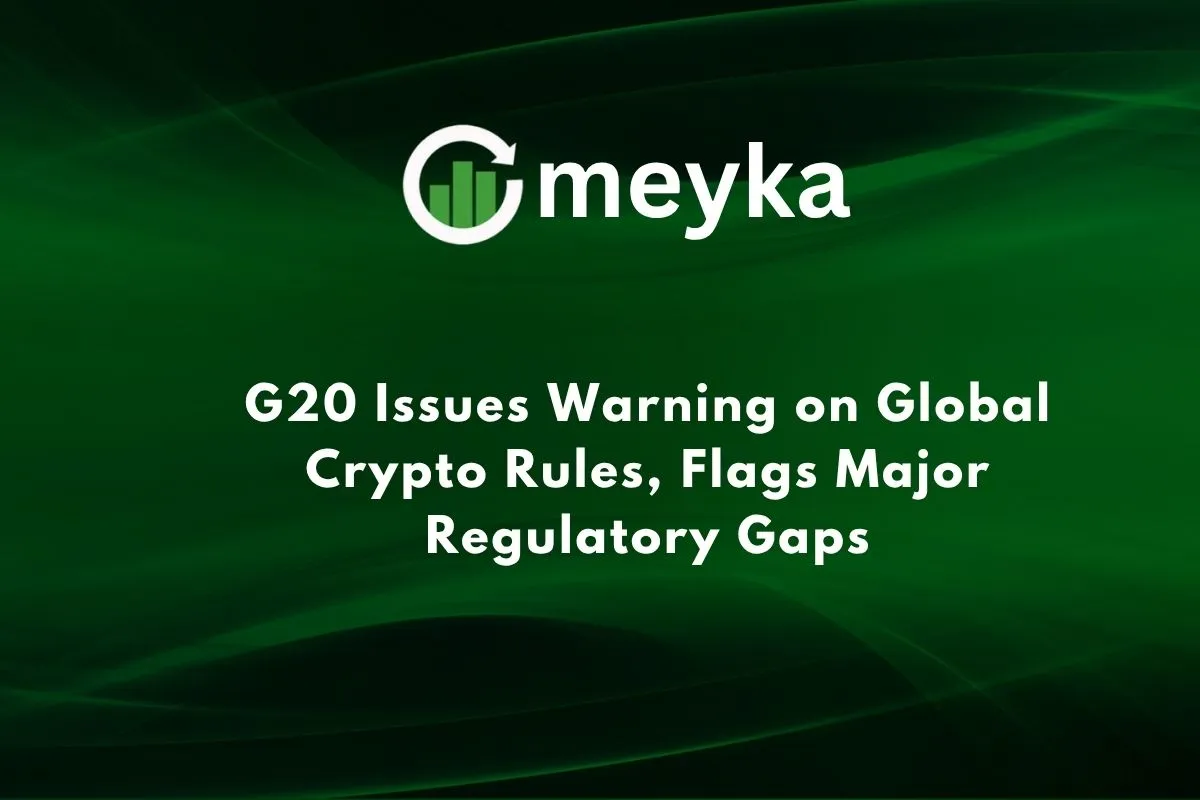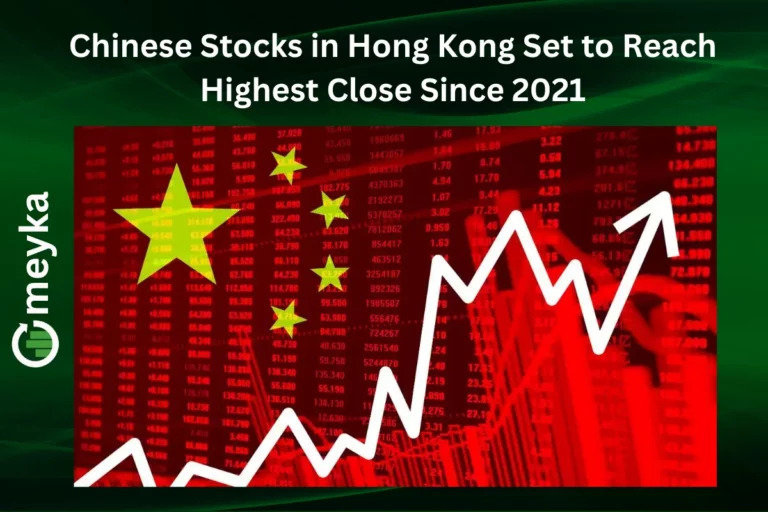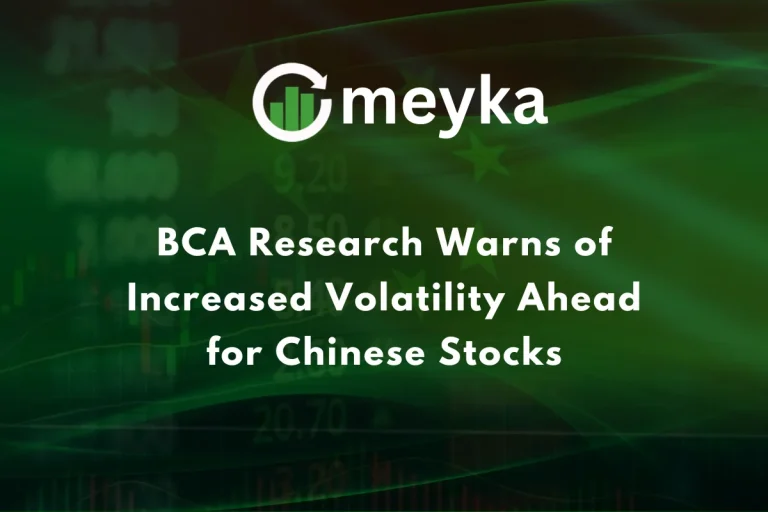G20 Issues Warning on Global Crypto Rules, Flags Major Regulatory Gaps
Cryptocurrencies today are more than niche toys; they’re central to global finance. Over the past year, the crypto market has roughly doubled in size, reaching about $4 trillion. As crypto becomes more entwined with traditional finance, cracks in the global regulatory system are growing more visible.
That is why the G20’s financial risk watchdog, the Financial Stability Board (FSB), has issued a sharp warning: many countries lack consistent, robust rules for regulating crypto and stablecoins. This isn’t just about tech; they see real danger to financial stability, consumer safety, and cross-border financial flows.
We’ll walk through the G20 warning, explore key gaps in regulation, and consider what a global framework might look like. Along the way, we’ll look at how investors, businesses, and governments could be affected. Let’s begin by understanding what triggered this alarm.
Why the G20 Sounded the Alarm
In October 2025, the FSB released a thematic peer review across 29 jurisdictions. It found that while some progress has been made since the FSB’s 2023 recommendations, the global regulatory approach remains fragmented, inconsistent, and insufficient to match the borderless nature of crypto.
One key concern: stablecoins. These are digital tokens pegged to fiat currencies, typically intended to avoid volatility. But despite a roughly $290 billion market, only a few nations have comprehensive regulation for stablecoins.
The FSB also flagged that crypto assets can slip across borders easily, evading local rules. That leaves gaps for “regulatory arbitrage” (moving operations to weak jurisdictions).
The warning makes clear: without a unified approach, risks may propagate across markets, and they already are on the rise.
Where We Stand: Crypto Regulation Worldwide
We live in a patchwork world when it comes to crypto regulation. Some countries embrace innovation; others ban it outright. Many are somewhere in between.
Some examples:
- The European Union has passed MiCA (Markets in Crypto-Assets), aiming for consistent rules within the bloc.
- The United States, under the 2025 GENIUS Act, mandates that stablecoins maintain full reserves.
- China continues a strict ban on crypto trading and mining, while exploring its digital yuan.
- India, according to recent reports, is cautious: it resists full crypto legislation, citing systemic risk concerns.
At the same time, the Financial Action Task Force (FATF) has called on nations to improve compliance; only 40 of 138 jurisdictions were considered “largely compliant” with crypto-asset standards in 2025.
This diversity means that crypto actors often face unequal rules depending on where they operate. That is exactly what the G20 critique warns against.
Major Regulatory Gaps as Highlighted by the G20
Let’s look at the holes in the regulation that the G20 and FSB see as most dangerous:
- Lack of a unified global framework
Countries adopt rules at different speeds. Some skip entire domains like DeFi, stablecoins, or cross-border supervision. The result: gaps where crypto can exploit jurisdictional loopholes. - Weak anti-money laundering (AML) and combating financing of terrorism (CFT) rules
Cryptos can facilitate anonymous, cross-border transfers. Without strong AML/CFT rules, bad actors exploit weak links. - Inadequate rules around stablecoins and DeFi
Stablecoins may lack backing or transparency in many places. DeFi (decentralized finance) protocols often operate with minimal oversight. The FSB warns that these risk points are underregulated. - Limited data sharing and cross-border supervision
When each nation uses its own rules and keeps data in silos, oversight becomes impossible. The G20 flagged the need for better cooperation across borders. - Consumer protection and market integrity gaps
Crypto firms sometimes operate in murky legal spaces, leaving users exposed. Clear rules on disclosures, asset custody, and recourse are often missing.
Because of these gaps, crypto markets may amplify shocks or systemic risks unexpectedly.
Why the Warning Matters: Risks of Doing Nothing
If we ignore these gaps, several dangers grow:
- Volatility and market crashes
Unregulated or loosely regulated crypto markets can suffer abrupt losses. When large institutions or many investors are exposed, the fallout can ripple into the wider financial system. - Fraud, theft, and scams
Weak regulation gives room for bad actors to exploit users. In 2025, illicit crypto wallet addresses reportedly received as much as $51 billion. - Regulatory arbitrage and jurisdiction shopping
Crypto firms may move to the least regulated regions. That undermines more cautious jurisdictions and weakens the whole global system. - Risks to developing economies
Countries with weak regulatory capacity may become “safe havens” for shady crypto operations, hurting their financial systems and reputation. - Undermining trust and adoption
Investors and conventional institutions hesitate to engage in crypto markets when rules are murky. That slows innovation and real adoption.
Existing Efforts Toward Regulation
Some progress is underway. But it is uneven and incomplete.
- The FSB in 2023 issued a Global Regulatory Framework for crypto and stablecoins.
- It also works with the IMF in a roadmap for coordinated implementation.
- The FSB’s October 2025 peer review showed some jurisdictions are adopting rules, but inconsistently.
- The EU’s MiCA sets rules for crypto service providers, market abuse, and stablecoins within the union.
- The GENIUS Act in the U.S. mandates a strong reserve backing for stablecoins.
- The FATF continues to push AML/CFT compliance globally.
Still, many jurisdictions remain without full or coherent rules. The FSB says that even key targets, for example, in cross-border payments, won’t be met by 2027 at the current pace.
Stablecoins, DeFi & the Hard Problems
These two domains stand out as especially tricky.
Why Stablecoins Are A Challenge?
Although meant to stabilize, stablecoins can operate without full reserves, transparency, or oversight. If their backing fails or trust breaks, they can collapse in dangerous ways. The G20 sees this as a systemic risk.
Why DeFi is Complicated?
DeFi protocols are decentralized and often pseudonymous. No central entity exists to regulate or enforce rules. Traditional oversight (licensing, audits, capital requirements) doesn’t map neatly to DeFi. Criminals can exploit smart contract bugs or anonymity.
Because of these features, G20 and the FSB emphasize that any regulatory framework must account for these new models, not ignore them.
What a Global Framework Could Look Like
If we were to design a unified crypto rulebook, here is what it should include:
- Standard rules for exchanges, wallets, and intermediaries
Licensing, capital buffers, audits, and disclosures, applied consistently. - Cross-border supervision and data sharing
Regulators in different countries coordinate to track flows, enforce rules, and share intelligence. - Stablecoin frameworks
Requirements for transparency, full backing, governance, audits, and tiered risk assessments. - Rules for DeFi protocols
Where possible, obligations around smart contract audits, transparency, and accountability. - Consumer protection & recourse mechanisms
Clear disclosures, insurance/funds for loss, dispute resolution. - Tax and reporting standards
International reporting frameworks (e.g., OECD’s CARF) to prevent tax evasion. - Enforcement cooperation
Cross-border legal treaties, joint investigations, and harmonized enforcement.
Such a framework would allow innovation while managing risks.
Challenges to Implementation
Even if we understand what to do, doing it is hard.
- Sovereignty concerns
Nations may resist ceding authority or adopting rules that conflict with national interests. - Fast pace of innovation
Technology evolves faster than legislation. Rules may become outdated or stifling. - Capacity differences
Some countries lack technical, legal, or regulatory resources to enforce complex crypto rules. - Competition and protectionism
Countries may try to attract crypto business by under-regulating, leading to a “race to the bottom.” - Balancing regulation and growth
Over-regulation risks stifling innovation, particularly in emerging economies.
Implications for Investors, Businesses & Governments
- For startups and exchanges
Clear rules reduce uncertainty. But compliance costs may be high, especially for small players. - For investors
Strong regulation builds confidence. But rules might restrict some high-risk, high-return opportunities. - For governments
They need to balance control, innovation, and stability. They must coordinate internationally to avoid unintended leaks. - For global financial stability
Unified rules reduce the chance that crypto shocks spill into mainstream finance.
What’s Next: The Road Ahead
We expect the G20 and FSB to press member nations to adopt consistent regulation in the coming years. The FSB has already issued eight recommendations urging faster and deeper implementation.
Key meetings (e.g., G20 finance ministers, summits) will test whether nations commit or revert to siloed paths. Some countries will push for faster adoption, others will resist.
Large economies like the U.S., EU, China, and India will be pivotal in setting the tone. Their cooperation, or lack thereof, will shape whether global crypto regulation succeeds or fails.
Conclusion
The G20’s warning is not alarming; it’s a reality check. As crypto assets scale, the gaps in regulation are not theoretical; they are dangerous. We need global standards built for the decentralized, cross-border nature of crypto.
We must not choose between innovation and safety; we need both. With cooperation, clarity, and care, we can build a framework that protects users, supports growth, and guards financial stability. The time to act is now.
FAQS:
The biggest risk is that prices can change very fast. People can lose money quickly. There is also danger from scams, hacking, and weak rules in many countries.
Switzerland is known for crypto-friendly rules. It allows blockchain businesses to grow. The country has clear laws and supports companies that work with digital assets and tokens.
Some countries ban crypto to stop money crimes and protect investors. They worry about fraud, lost taxes, and people using digital coins for illegal or hidden activities.
Disclaimer:
This content is for informational purposes only and is not financial advice. Always conduct your research.






